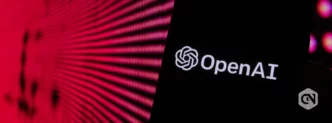In a symposium at the World Economic Forum, Antònio Guterres, Secretary-General of the United Nations, outlined what he believed were four gravest threats that the world faced today: climate war, mistrust of leaders, an increase of geopolitical tension, and the dark side of digital. Guterres compared the four threats to the Four Horsemen of the Apocalypse from the Christian Book of Revelations.
“I would use two words to describe the state of the world today: uncertainty and instability,” stated Guterres yesterday during a plenary session of the WEF’s Annual Meeting 2020.
He argued that a key priority for the United Nations, as well as the technological community, must be to ensure that Artificial Intelligence (AI) becomes a force for good.
Humanity and AI: A New Social Contract
AI systems engage extensively with humans and thus hold massive amounts of sensitive and private data. This raises serious concerns regarding their potential ability to cause injury.
Advertisement
Therefore, as the relationship between humans and AI transforms with strides in the field of AI development, the tech community must adhere to globally accepted ethical standards. AI systems must be built by diverse teams with the use of diverse sets of data to ensure that the tech does not reflect or exacerbate inequalities inherent in our society today.
AI development must also prioritize concerns of data privacy and ensure that people who consume the technology consent to sharing their information. As humans and AI enter a new partnership, it is up to the UN and other leaders in technology to ensure AI development is ethical and adheres to the principles of ‘inclusive multilateralism’.
To this end, the Secretary-General said that to tackle “chaos in cyberspace and ensure that artificial intelligence becomes a force for good, we need to boost international cooperation.”
Guterres added that “Governments control less and less of the collective life of countries.” He drew attention to the fact that 66 countries experienced massive public demonstrations against state establishments in the last year. This is evidence that people have increasingly little confidence in their governments.
Therefore, the Secretary-General advocated that international organizations must ensure that they give a voice to the people who go unheard. All international organizations must adapt their modus operandi to reflect the principle of inclusive multilateralism.
Advertisement
Guterres emphasized that the UN must work hand-in-hand with non-governmental actors like civil society groups, local authorities, businesses, and others as it explores a new social contract between humans and technology.







